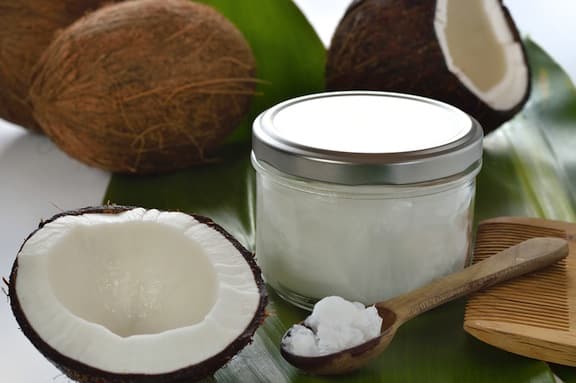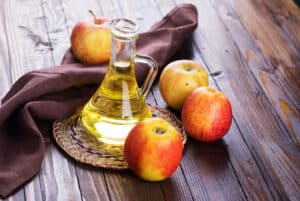Who would have known that there are so many types of cooking oils out there? You may have thought that olive, sunflower, coconut, palm, and all of the other variants were impressive, but the list doesn’t stop there. The fact is that more and more types of oil are crafted for specific needs. Oil doesn’t always have the best of reputations, often being associated with fats and all the damage that frying can cause to our health. But there are ways you can use cooking oil without fearing that your cholesterol levels will go through the roof.
When trying to determine the healthfulness of a type of oil, it’s important to consider that what makes one better than another is if it continues to be healthy even after you’ve cooked with it.
Canola Oil
Canola a great choice for cooking because it has light texture, a neutral taste, and a tolerance for heat high enough to allow you to fry anything.
The oil results from a crossbred plant that manages to share some similarities with cabbage and broccoli and it’s primarily grown and harvested in Canada, which is why there is a “can” in the name. Uncanny, right? It’s extracted from the seeds of the plant through crushing, and they’re very favored by lovers of healthy lifestyles because the concentration of toxins in the seeds is significantly lower in comparison to other examples.
Another important advantage of canola oil is its even omega-6 fats ratio. Oils like those made from corn contain a ratio of 7-to-1, compared to canola oil and it’s pretty balanced 2-to-1 ratio. Why is this a good thing? It’s believed that consuming too many omega-6 fats can lead to several health issues, including lower defenses against diseases and slower recovery time post-training for athletes
Something you need to keep an eye out for is the canola oil you find in supermarets. These might be genetically modified or loaded with other oils. If you truly want to benefit from all that canola has to offer, use only organic varieties.
Coconut Oil
One of the most common uses for oil for high-temperature cooking, coconut oil is one of your best When at room temperatures, coconut oil is solidified, which helps it last through months without going rancid.
Moreover, coconut oil is rich in beneficial substances, such as a particular one called lauric acid. It has plenty of benefits for our bodies, including the fact that it can actually help reduce cholesterol levels and it can help combat various pathogens threatening our health.
A good tip — make sure you choose virgin coconut oil because it’s lighter, tastier, more natural, and it gives a boost of health benefits. Once considered harmful because of its saturated fat content, further studies of coconut oil prove just the opposite.
Avocado Oil
Avocado is as versatile as any produce can be. Not only is it the basis of beloved guacamole, but it can also be turned into a delicious and healthy culinary oil. The oil is extracted directly from the flesh of a ripe fruit. What special advantage does it have over the other competitors? It has the highest smoke point, somewhere over 500º F, of all the plant-based oils.
In other words, you can set it directly on high flame and it will serve all of your high-temperature cooking needs. Another great thing is its taste, which is reminiscent of butter. The savory nature of the oil makes it a good choice for dressings or any other forms of non-heat cooked foods, as well.
Monosaturated fats are very present in avocado oil and they contribute to the reduction of cholesterol levels. Moreover, avocado oil has been proven to improve eyesight and helps promote a healthy and natural complexion. Sprinkle some avocado oil over your favorite salad if you truly want to get the best of what they have to offer given the fact that it can boost the absorption of fat-soluble antioxidants. In other words, substances such as beta carotene and lycopene, present in a number of vegetables, is going to enter our organisms much quicker and work toward some results.
Olive Oil
 Olive oil started the trend, outside of its native Mediterranean region, of turning to oils other than corn and sunflower. It continues to be one of the most popular and best-loved oils available. Researchers have reached the consensus that olive oil is a primary reasons that Mediterranean diets provide so many health benefits. Just like the other oils mentioned on this list, it plays a great role in combating bad cholesterol, doing so by boosting levels of good cholesterol.
Olive oil started the trend, outside of its native Mediterranean region, of turning to oils other than corn and sunflower. It continues to be one of the most popular and best-loved oils available. Researchers have reached the consensus that olive oil is a primary reasons that Mediterranean diets provide so many health benefits. Just like the other oils mentioned on this list, it plays a great role in combating bad cholesterol, doing so by boosting levels of good cholesterol.
From a chemical stand point, given the fact that it contains double-bonded fatty acids, it doesn’t sound like it would be a good idea to use it for high-temperature cooking. This has been disproven by scientists, who claimed that you can definitely use it for high-heat cooking. But, you know, very few people actually choose to do so. Olive oil is a favorite among both amateur and professional chefs because of the incredible taste it brings to cold dishes such as salads or other delicious combinations.
Honorable Mention: Nut Oils
Although all of those are fantastic choices to bring some health into your culinary habits, nut oil is worth a mention. It’s definitely not good for high-temperature cooking, but incorporated in recipes that don’t require high heat, it’s fantastic. In this category you’ll find almond oil, walnut oil, and sesame oil.
Contributed by Mike Jones, who is a Boston University graduate, with an M.S. in Mass Communication. He is a full-time writer, passionate about health and wellness.







Comments
No Comments